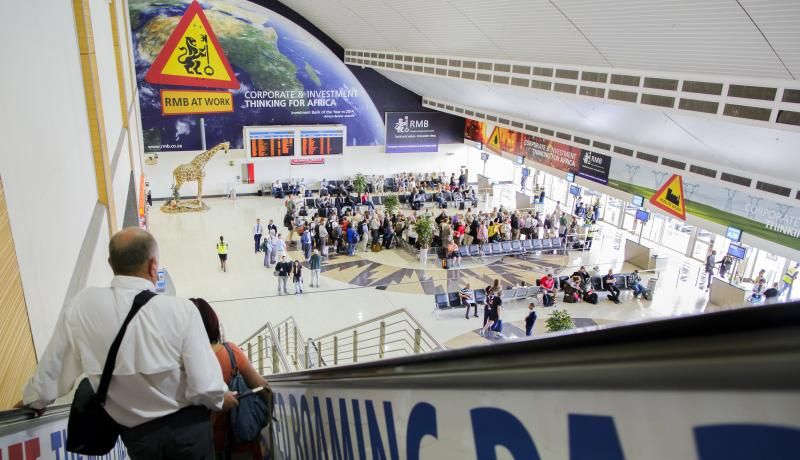
South Africa’s status as the ‘gateway to Africa’ is under serious threat. Its companies continue to flourish, but complex relationships at home and abroad constrain government capacity to match its economic dominance with political reach and influence.
South Africa’s policies towards the rest of the continent are often accused of being inconsistent and incoherent. It has been a development partner to the region and to international donors; a moral leader, championing human rights and exporting its own model of transition; and an advocate and representative for the continent in international forums. However, it has simultaneously been accused of exploiting its economic dominance at the expense of its neighbours; handicapped by the political debts owed by the ANC to other liberation movements for their assistance in the struggle; and criticized for its arrogance in seeking to position itself as the ‘legitimate’ voice of Africa.
At the same time, reputational risks, a weakened policy environment and poor growth have taken the shine off South Africa’s ‘Gateway to Africa’ rhetoric. South Africa faces considerable domestic economic issues. Growth forecasts have fallen from 1.3 to 0.7 per cent, State owned enterprises are a huge burden on the treasury, and the forecast budget deficit is R50.8 billion (£2.7 billion), at a time when the cost of borrowing is increasing following downgrades of the country’s credit ratings.
Political risk is high, lowering investor confidence. Corruption, poor service delivery and the government’s under-delivery on citizen’s expectations are exacerbating social tensions in a country with expanded unemployment at 36.4 per cent, and one of the highest rates of inequality in the world. McKinsey, KPMG and HSBC have all become entangled in scandal relating to their dealings with government entities that have become ‘captured’ by private interests.
Despite these concerns, South Africa nonetheless remains the backbone of the regional economy, and its firms are key players across the continent. Johannesburg hosts the deepest and most sophisticated capital market on the continent, and Pretoria has one of the highest numbers of diplomatic missions in the world. ESKOM provides around 75 per cent of the electricity contribution to the Southern Africa SADC Power pool – comprising 12 countries, including those as far north as DRC and Tanzania – and South African ports facilitate over half of sub-Saharan Africa’s non-commodity trade with the rest of the world.
Post-apartheid expansion across the continent by South African companies was initially met with resistance, but these relationships have improved significantly – and South African firms retain significant advantages. South African retailers have the scale to incorporate regional producers into continental supply chains, purchasing fresh produce at a competitive price from regional agri-businesses, then re-selling further afield. For example, Zambeef supplies meat from Zambia to Shoprite stores in west Africa.
African companies in turn rely on South Africa as a significant consumer of goods, services and primary commodities. A South African government agreement with the DRC to import about half of the electricity that will be produced by a new grand-scale hydro-power project guaranteed its bankability. Mozambique is looking to maximize the potential of its world-class natural gas reserves by building a pipeline into South Africa, thus benefitting from the purchasing power of South African parastatal electricity utility firm ESKOM.
But South Africa’s status as an economic hegemon is not mirrored in its political relationships. South Africa’s GDP is five times higher than the six countries with which it shares a border, combined. But successive ANC governments have been unable to fully flex this economic muscle. Partly this is a legacy of history. It is not forgotten that the regional economic body, the Southern African Development Community, originated as the organization of Front Line States coordinating efforts to end apartheid, and ZANU-PF officials in Zimbabwe lecture their ANC counterparts on liberation.
The pan-African vision of former president Thabo Mbeki, and promotion of South Africa’s transition as a model for the continent, reflected the values that have driven ANC policy since the end of apartheid. But the coherence of South Africa’s foreign policy has been undermined by conflict and contradiction within the government. Appetite for engagement in Africa is dwindling. The country’s ability to project military influence across the continent is in critical decline. Jacob Zuma’s use of regional political bodies as a means of removing political rivals from domestic politics has corroded goodwill.
A new Africa Programme research paper argues that a fresh approach to South African engagement on the continent is both possible and necessary. South Africa can use its relative economic weight to play a stronger developmental role, leveraging the strengths of its business sector and its financial agencies. But it must match this with stronger and more cooperative political engagement, particularly through cultivating relationships with pivotal states such as Nigeria, Kenya, Ethiopia and Angola.
In December, the ANC will elect a new leader to take the party into elections in 2019. Both leading candidates have international experience – Nkosazana Dlamini-Zuma was the chair of the African Union, and Cyril Ramaphosa has led regional responses to crises in South Sudan, Lesotho and Burundi. South Africa still has considerable foreign policy resources at its disposal. A new strategic vision for Africa that unites the interests of government and business, both domestically and in partner states, can deliver prosperity for both South Africa and the region – and need not contradict the values that have shaped South Africa’s aspirations for the continent in the post-apartheid era.
Chris Vandome, Research Analyst, Africa Programme.
